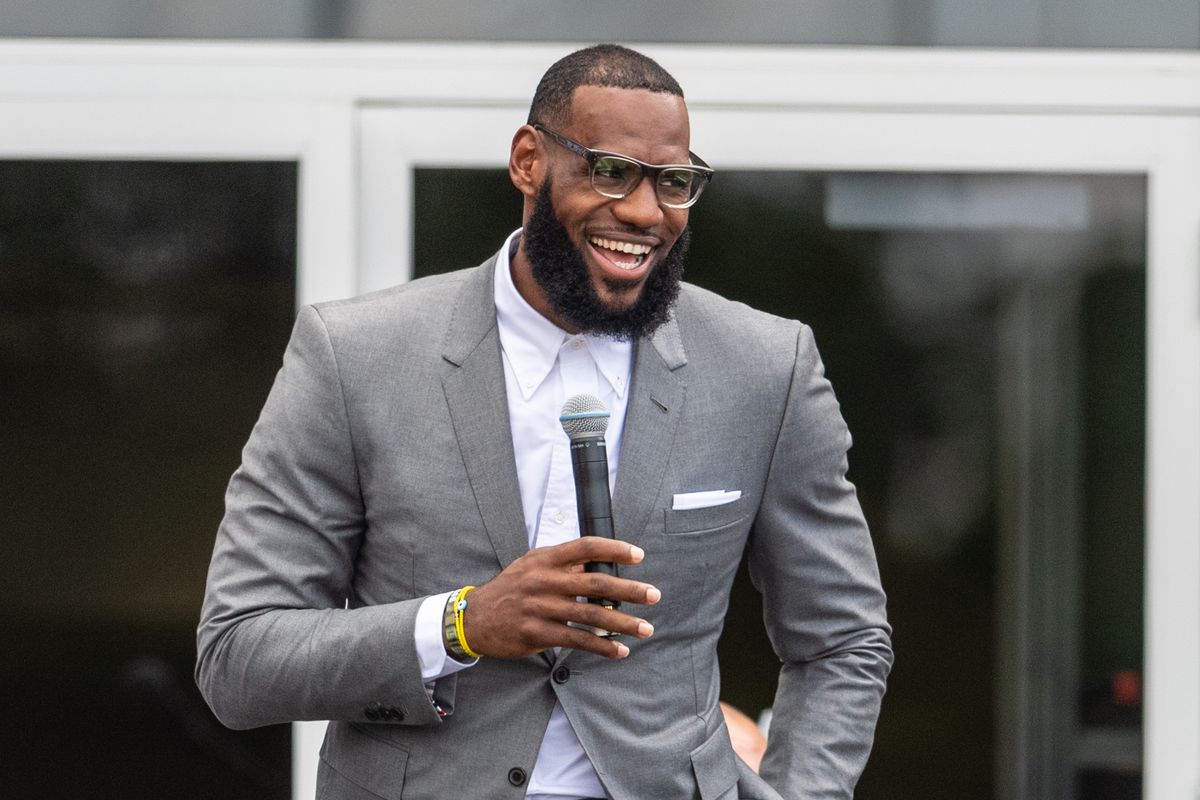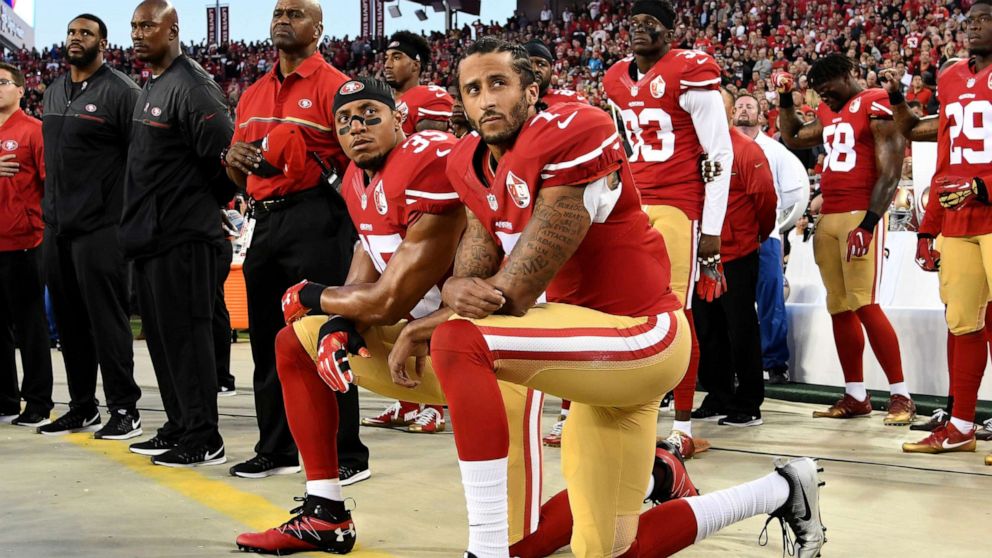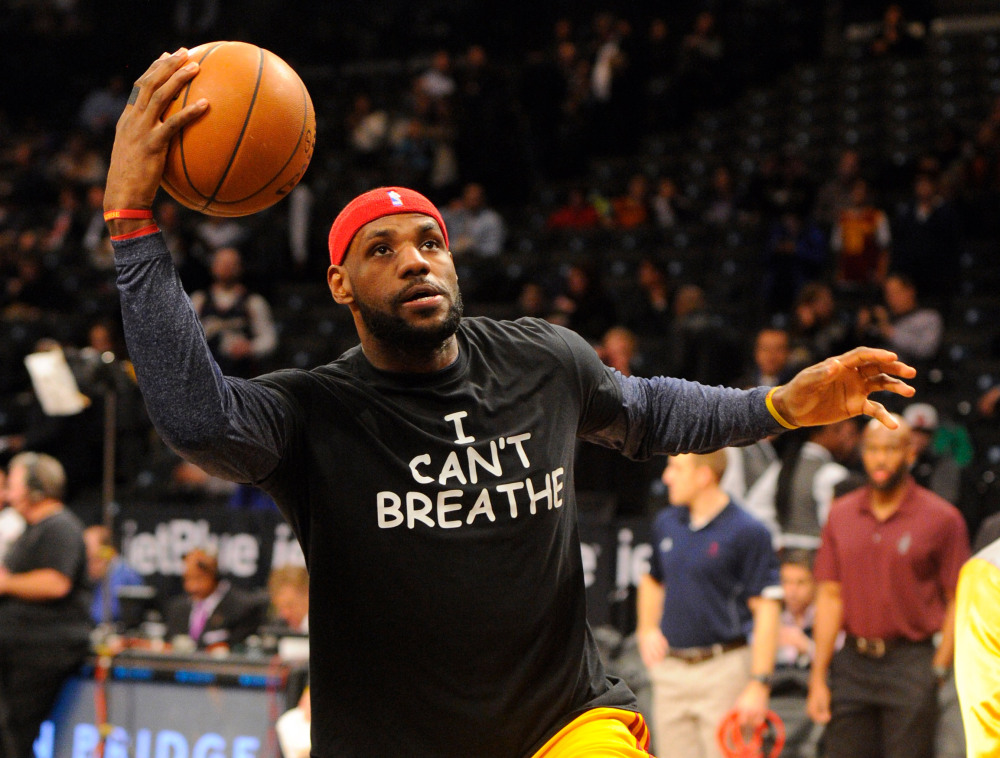
Four years ago, Colin Kaepernick of the San Francisco 49ers began protesting police violence against African-Americans by kneeling during the playing of the national anthem at the start of each NFL game he participated in.
At the time, Kaepernick made it very clear that he was choosing to protest in that way in order to draw attention to the plight of Black people in this country. He wanted to highlight both police brutality and the systemic racism that pervades this country.
He stated that his protest was not against the flag, or the United States in general, or against our military service members. In fact, he chose to kneel after consulting with a former Green Beret, Nate Boyer.
Kaepernick was quickly joined by other NFL players around the league, including his teammate, Eric Reid. They faced an immediate backlash from Donald Trump and countless other Americans. They said his protest was disrespectful to the flag, to the country, and to the military.
They didn’t listen to the issues Kaepernick was trying to bring attention to. They just assigned his behavior the worst possible intentions. They labeled him a traitor and said he was un-American. There were a variety of reasons that people felt an innate opposition to Kaepernick and his actions. One of those reasons is that they listened to politicians like Trump and others in the media who had an agenda to push forth: that some people in America hate America, and they are somehow less American than those who love America. It was an argument that did not stand the test of logic. It was a classic straw-man. A false dichotomy.
If they would have listened to interviews with Kaepernick, they would have heard him say he loved America and had respect for the military and those who have served.
So why did he choose to kneel during the playing of the national anthem?
He did so because he wanted to draw attention to issues such as police brutality and systemic racism in America, particularly as it pertains to African-Americans.
If he would have chosen to just kneel on the sideline during the middle of a football game, would anyone have noticed or cared? Should he have chosen to go to a random street corner and kneel and then post it on YouTube? Would anyone have paid attention to what he was trying to say if he just did it on his own time? The answer is an unequivocal No.
Another common criticism of Kaepernick was that he was doing this “while at work”, and that most of us are not allowed to protest at work. First of all, some of us are. Not all employers are the same. Second of all, since when are celebrities like professional athletes the same as the rest of us? They have a much larger platform than the average person. They have a power that the rest of us don’t have. It doesn’t mean that they shouldn’t be held to the same ethical standards as the rest of us. It just means that when the moment calls for it, they can use that power and that platform to affect positive change in our society. Many of us grow up looking at athletes as our role models. We expect the most from them and model our own behavior after them. Kaepernick chose to lead on an issue that has plagued America since its inception: racism. He knew it wouldn’t be a popular opinion for some people, and he paid dearly for it.
Egged on by President Trump and his ilk, the NFL began a swift retribution against Kaepernick and others. Not only did Kaepernick not play in the NFL after that season when he kneeled, but the NFL eventually developed a policy that said that all players had to stand during the playing of the national anthem.
Kaepernick was ostracized, labeled as un-American. In ways both formal and informal, he was kept out of the public eye because of his heroic actions.
But now people are changing their minds about Kaepernick and his actions. It’s deeply unfortunate that it took the horrific murder of George Floyd by the Minneapolis police to bring us to this new awareness. But we are now having a national conversation about racism. To say it is long overdue would be a vast understatement. We don’t know if it will lead to meaningful changes in our society. Only time will tell us that. But there is reason for hope and optimism.
NFL Commissioner Roger Goodell released a video last week in which he said that the NFL would no longer prevent players from kneeling during the anthem. He went further and said that the league had not done enough to fight racism in our society. In essence, he said that they were wrong about Kaepernick and that they would do a better job in the future.
With any hope, future generations of Americans will study this time period in history and they will learn the names of George Floyd and Colin Kaepernick. They will think of these two as warriors who fought the long and hard battle toward justice and equality.
That’s not to say that Kaepernick and Floyd should be viewed as equals by any means. Floyd did not choose his role in history, and he paid the ultimate price for the color of his skin. Kaepernick chose to take a stand by taking a knee. He paid a great price for it, but at least he still has his life.
Let’s hope that when our sports return, they look different. Let’s hope when our society returns, it too looks different. Fairer. More just. More aware. It doesn’t mean that we can completely eradicate racism and hate from humanity. But we can do much, much better than we have been doing for the first 250 years of this country.
It should never have taken a pandemic to get us here. It shouldn’t have taken the senseless murder and enslavement of untold numbers of people. Let’s make sure that the world we mold moving forward reflects the sacrifices of people like Kaepernick and Floyd. A world in which all people are given the same opportunities. We don’t have any excuses left. We have done it the wrong way for a very long time. Now it’s time to do it the right way.




